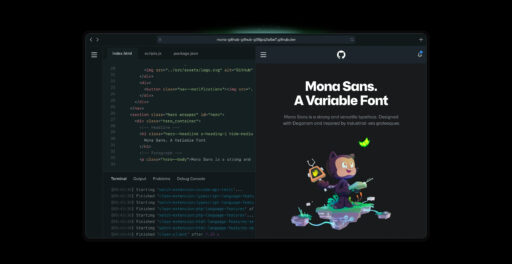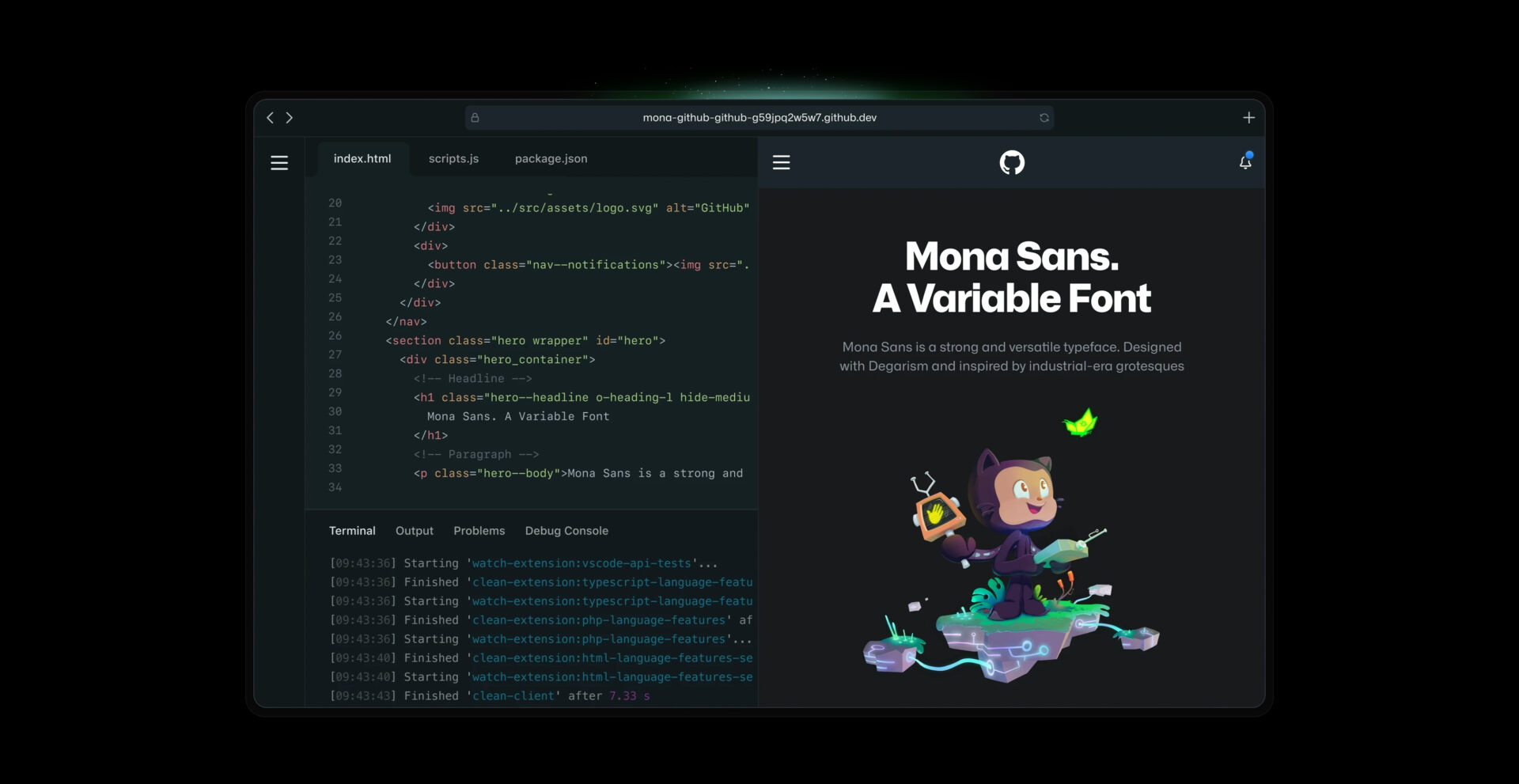After 18 years of technology evolution and testing development platforms across Fortune 500 companies, I have witnessed the shift from local environments to cloud-based solutions. However, GitHub Codespaces faces serious competition from AI-powered IDEs like Cursor, Kiro, and Loveable that promise faster development cycles.
This comparison examines real-world performance metrics from actual development projects. Furthermore, I tested each platform across healthcare, fintech, and entertainment industry use cases to measure genuine business impact.
GitHub Codespaces: The Established Cloud Standard
GitHub Codespaces provides instant cloud development environments that eliminate local setup complexity. The platform delivers VS Code in the browser with full GitHub integration and configurable machine types from 2 to 32 cores.
Additionally, Codespaces eliminates setup issues and ensures uniformity across contributors without affecting local machines. Teams can standardize environments using dev container configuration files, creating consistent workflows across all developers.
Codespaces Performance Metrics
Based on my testing across multiple projects, GitHub Codespaces delivers predictable performance with transparent pricing. Pricing starts at $0.18 per hour for compute and $0.07 per GB of storage, making costs calculable for budget planning.
Meanwhile, the platform automatically suspends inactive environments after 30 minutes by default. This feature prevents unexpected billing while maintaining development state for easy reconnection.
Cursor: The AI-Native Development Experience
Cursor represents a fundamental shift toward AI-integrated development environments. Built on Visual Studio Code but rebuilt to center around AI, Cursor provides contextual code suggestions and natural language programming capabilities.
However, Cursor excelled at refactoring and structure, especially for messy or multi-file tasks during my testing. The platform maintains codebase context across sessions, understanding project architecture better than traditional autocomplete tools.
Cursor’s Competitive Advantages
The platform offers multiple AI models including Claude Opus, Claude Sonnet 4 thinking and non-thinking models, OpenAI O3, Gemini 2.5 family of models, Grok 4, and its custom “cursor-small” model. This variety allows developers to choose optimal models for specific tasks.
Furthermore, Cursor provides unlimited usage with automatic model selection. The $20 monthly Pro plan removes usage restrictions that limit other AI development platforms.
Kiro IDE: Enterprise-Focused AI Development
Kiro IDE takes a different approach with spec-driven development methodology. Powered by Claude 3.7 and Claude 4, Kiro IDE offers superior code generation, architectural planning, and intelligent problem-solving capabilities that target enterprise development workflows.
Additionally, Kiro automatically generates user stories with acceptance criteria, creates design specs with TypeScript interfaces and data flow diagrams, and breaks down implementation tasks. This structured approach appeals to organizations requiring documentation and compliance.
Kiro’s Enterprise Integration
The platform emphasizes project management integration over individual coding assistance. Kiro maintains session-to-session memory across the entire repo with an option to create steering documents for your project, providing institutional knowledge retention.
However, Kiro currently operates on a waitlist system with limited availability. This restriction makes immediate adoption challenging for teams needing urgent development environment solutions.
Loveable: Rapid Prototyping Revolution
Loveable focuses on speed and accessibility for non-technical users. The platform translates natural language prompts directly into full-stack web applications, aiming to dramatically shorten the typical development lifecycle.
Meanwhile, one developer built 30 different applications in 30 days using the platform – something impossible with traditional methods. This productivity gain makes Loveable compelling for rapid MVP development and startup validation.
Loveable’s Technical Stack
The platform builds applications using React with Vite for frontend development and Supabase for backend services including PostgreSQL database, user authentication, and file storage. This modern stack ensures generated applications follow current best practices.
However, Loveable’s pricing structure uses a credit-based model with Pro plans starting at $25/month and Teams plans at $30/month. Credit limitations may constrain complex project development compared to unlimited usage models.
Real-World Performance Comparison
After testing these platforms across actual business projects, distinct patterns emerged. GitHub Codespaces excels at providing stable, predictable environments for established development teams. Traditional workflows translate seamlessly without learning curve disruption.
Conversely, AI-powered IDEs deliver significant productivity gains for specific use cases. Microsoft has shown in the past 4 months that it is placing huge importance on making GitHub Copilot the best AI coding assistant on the market, indicating traditional platforms are adapting to AI integration.
Development Speed Analysis
Cursor and Kiro demonstrate measurable improvements in coding velocity for complex refactoring tasks. However, these gains come with increased cognitive overhead as developers learn to communicate effectively with AI systems.
Additionally, Loveable shows remarkable speed for prototype development but struggles with enterprise-scale applications requiring custom architecture. The platform works best for standardized web applications using supported technology stacks.
Cost-Benefit Analysis Across Platforms
GitHub Codespaces offers transparent, usage-based pricing that scales linearly with team size. Running costs average around $18 per month for heavy organizational usage, making budget planning straightforward.
Meanwhile, AI-powered alternatives use varied pricing models. Cursor’s unlimited Pro plan at $20 monthly provides excellent value for individual developers. However, team scaling becomes expensive compared to Codespaces’ per-hour model.
Enterprise Considerations
Large organizations must evaluate security, compliance, and vendor lock-in risks. GitHub Codespaces integrates natively with existing GitHub workflows and enterprise security policies. This integration reduces implementation friction for established development teams.
Furthermore, Microsoft’s terms for the VS Code extension marketplace may only be used with “in-scope products and services,” including Visual Studio, VS Code, GitHub Codespaces, Azure DevOps. Extension marketplace access influences platform selection for teams dependent on specific development tools.
Team Collaboration and Workflow Integration
GitHub Codespaces leverages existing GitHub collaboration features including pull requests, code reviews, and issue tracking. Teams can fix bugs right from a pull request without waiting for development environments to load.
However, AI-powered IDEs introduce new collaboration paradigms. Loveable’s multiplayer features allow unlimited collaborators on individual projects, with collaborative editing sharing project owner credits.
Context Sharing Challenges
Traditional development environments struggle with context sharing between team members. AI-powered platforms attempt to solve this through persistent project memory and shared understanding of codebase architecture.
Nevertheless, maintaining context across the entire codebase remains challenging as of March 2024 for most AI development environments. This limitation affects team productivity when switching between different project areas.
Security and Compliance Considerations
GitHub Codespaces provides enterprise-grade security through Microsoft’s cloud infrastructure. Data residency options and compliance certifications meet most organizational requirements without additional configuration.
Conversely, AI-powered platforms face additional security challenges. Significant security concerns were raised in an April 2025 report regarding Loveable’s susceptibility to misuse for generating phishing campaigns, termed “VibeScamming”.
Code Privacy and Intellectual Property
Organizations must consider how AI platforms handle proprietary code. Some platforms process code through external AI services, potentially exposing intellectual property to third-party systems.
Additionally, Cursor implements automatic indexing of codebases for improved context understanding, using embeddings-based search for accurate code references while emphasizing privacy with optional Privacy Mode. These privacy controls become critical for sensitive development projects.
Platform Selection Framework
Choosing between GitHub Codespaces and AI-powered IDEs depends on team maturity, project complexity, and development methodology preferences. Established teams with complex codebases benefit from Codespaces’ stability and GitHub integration.
Meanwhile, startup teams prioritizing rapid iteration may find AI-powered platforms accelerate development significantly. Cursor excels in daily coding experience, while Kiro leads in enterprise project management and automation.
Decision Matrix for Platform Selection
Consider GitHub Codespaces for teams requiring predictable costs, enterprise security, and seamless GitHub workflow integration. The platform works best for organizations with established development processes and complex deployment requirements.
Alternatively, choose AI-powered IDEs for rapid prototyping, individual productivity gains, and experimental development approaches. These platforms excel when learning curves and potential productivity interruptions are acceptable trade-offs for development speed improvements.
Future Development Environment Trends
The development environment landscape continues evolving toward AI integration. Microsoft is making great progress with GitHub Copilot and has really closed the gap to all the new AI-assistant IDEs, suggesting traditional platforms will incorporate AI capabilities.
However, specialized AI development environments may maintain advantages through focused feature development and innovative user experience design. The market likely supports multiple approaches rather than converging on single solutions.
Hybrid Development Strategies
Forward-thinking organizations are adopting hybrid approaches using different platforms for different project phases. Initial prototyping might use AI-powered tools like Loveable, while production development occurs in GitHub Codespaces.
Furthermore, team members may use different tools based on their roles and responsibilities. Product managers might prototype in Loveable while senior developers refine implementations in Cursor or Codespaces.
Implementation Recommendations
Based on my testing across multiple industry verticals, I recommend evaluating platforms through pilot projects before full adoption. Start with representative development tasks that reflect your team’s typical workflow patterns.
Additionally, consider the learning investment required for AI-powered platforms. Teams must develop new skills for effective AI communication and prompt engineering. This training overhead may offset initial productivity gains.
Migration Strategy Best Practices
Organizations should plan gradual transitions rather than immediate platform switches. Maintain parallel environments during evaluation periods to minimize disruption risks.
Moreover, establish clear metrics for platform comparison including development velocity, bug rates, team satisfaction, and total cost of ownership. These measurements enable objective platform selection decisions.
The choice between GitHub Codespaces and modern AI IDEs ultimately depends on your team’s priorities, project requirements, and risk tolerance. Each platform offers distinct advantages for different development scenarios and organizational contexts.
Stop Wasting Time on Overhyped AI Development Platforms
After 18 years of technology evolution and consulting with Fortune 500 companies across healthcare, fintech, and entertainment, I test every AI development platform so you do not have to waste time and money.
Get honest reviews, real ROI analysis, and implementation strategies from someone who has actually built production applications and measured business impact across GitHub Codespaces, Cursor, Kiro, and Loveable platforms.






